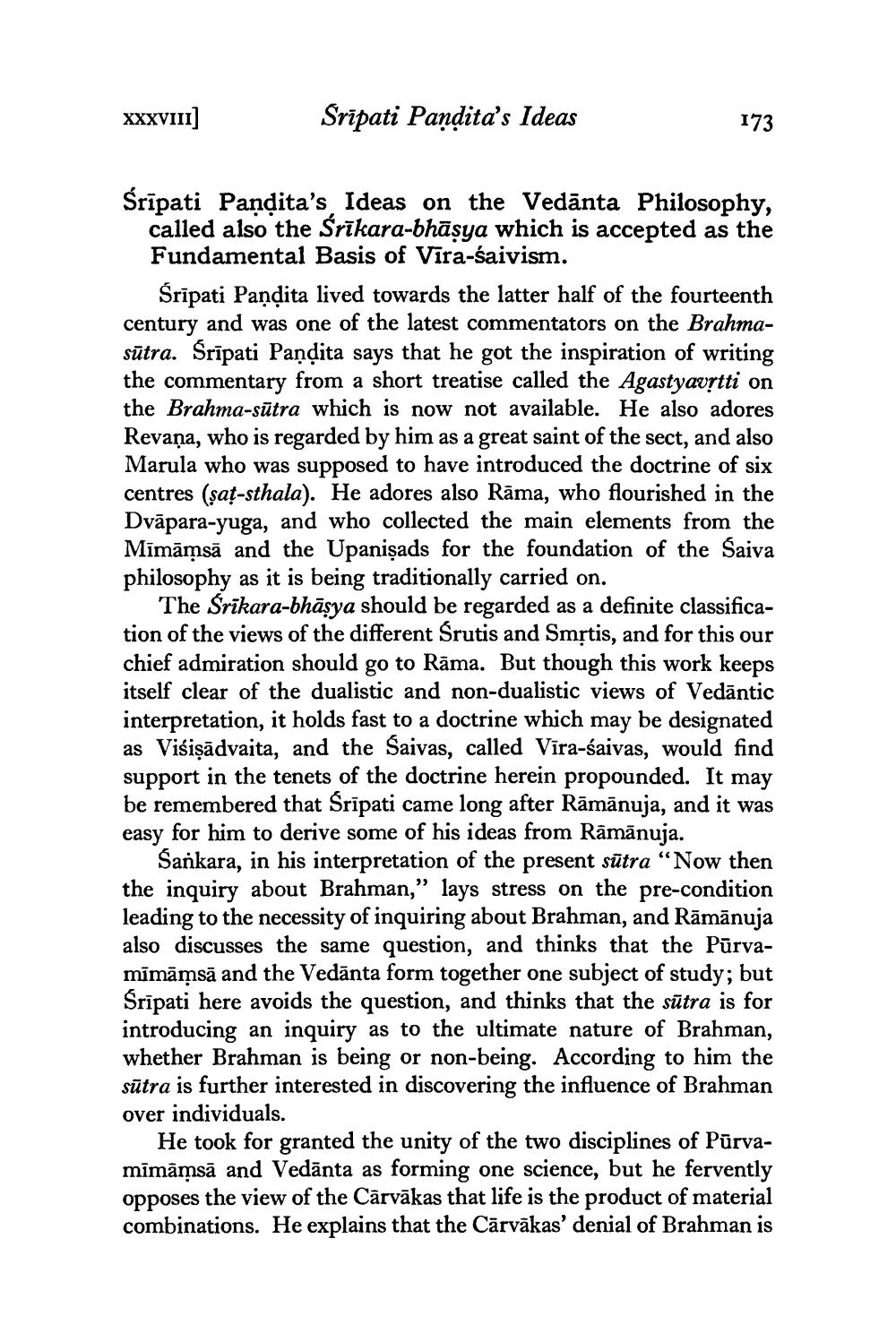________________
XXXVIII]
Srīpati Pandita's Ideas
173
Śrīpati Pandita's Ideas on the Vedānta Philosophy,
called also the Śrīkara-bhāsya which is accepted as the Fundamental Basis of Vira-saivism.
Śrīpati Pandita lived towards the latter half of the fourteenth century and was one of the latest commentators on the Brahmasūtra. Srīpati Pandita says that he got the inspiration of writing the commentary from a short treatise called the Agastyavrtti on the Brahma-sūtra which is now not available. He also adores Revaņa, who is regarded by him as a great saint of the sect, and also Marula who was supposed to have introduced the doctrine of six centres (sat-sthala). He adores also Rāma, who flourished in the Dvāpara-yuga, and who collected the main elements from the Mīmāmsā and the Upanişads for the foundation of the Saiva philosophy as it is being traditionally carried on.
The Srikara-bhāsya should be regarded as a definite classification of the views of the different Śrutis and Smộtis, and for this our chief admiration should go to Rāma. But though this work keeps itself clear of the dualistic and non-dualistic views of Vedāntic interpretation, it holds fast to a doctrine which may be designated as Visiņādvaita, and the Saivas, called Vira-śaivas, would find support in the tenets of the doctrine herein propounded. It may be remembered that Śrīpati came long after Rāmānuja, and it was easy for him to derive some of his ideas from Rāmānuja.
Sankara, in his interpretation of the present sūtra “Now then the inquiry about Brahman," lays stress on the pre-condition leading to the necessity of inquiring about Brahman, and Rāmānuja also discusses the same question, and thinks that the Pūrvamīmāmsā and the Vedānta form together one subject of study; but Srīpati here avoids the question, and thinks that the sūtra is for introducing an inquiry as to the ultimate nature of Brahman, whether Brahman is being or non-being. According to him the sūtra is further interested in discovering the influence of Brahman over individuals.
He took for granted the unity of the two disciplines of Pūrvamīmāmsā and Vedānta as forming one science, but he fervently opposes the view of the Cārvākas that life is the product of material combinations. He explains that the Cārvākas' denial of Brahman is




